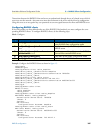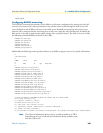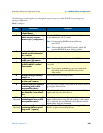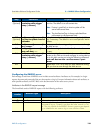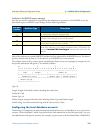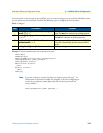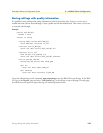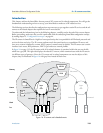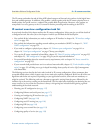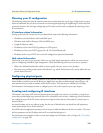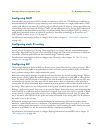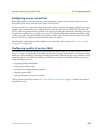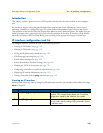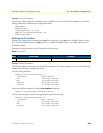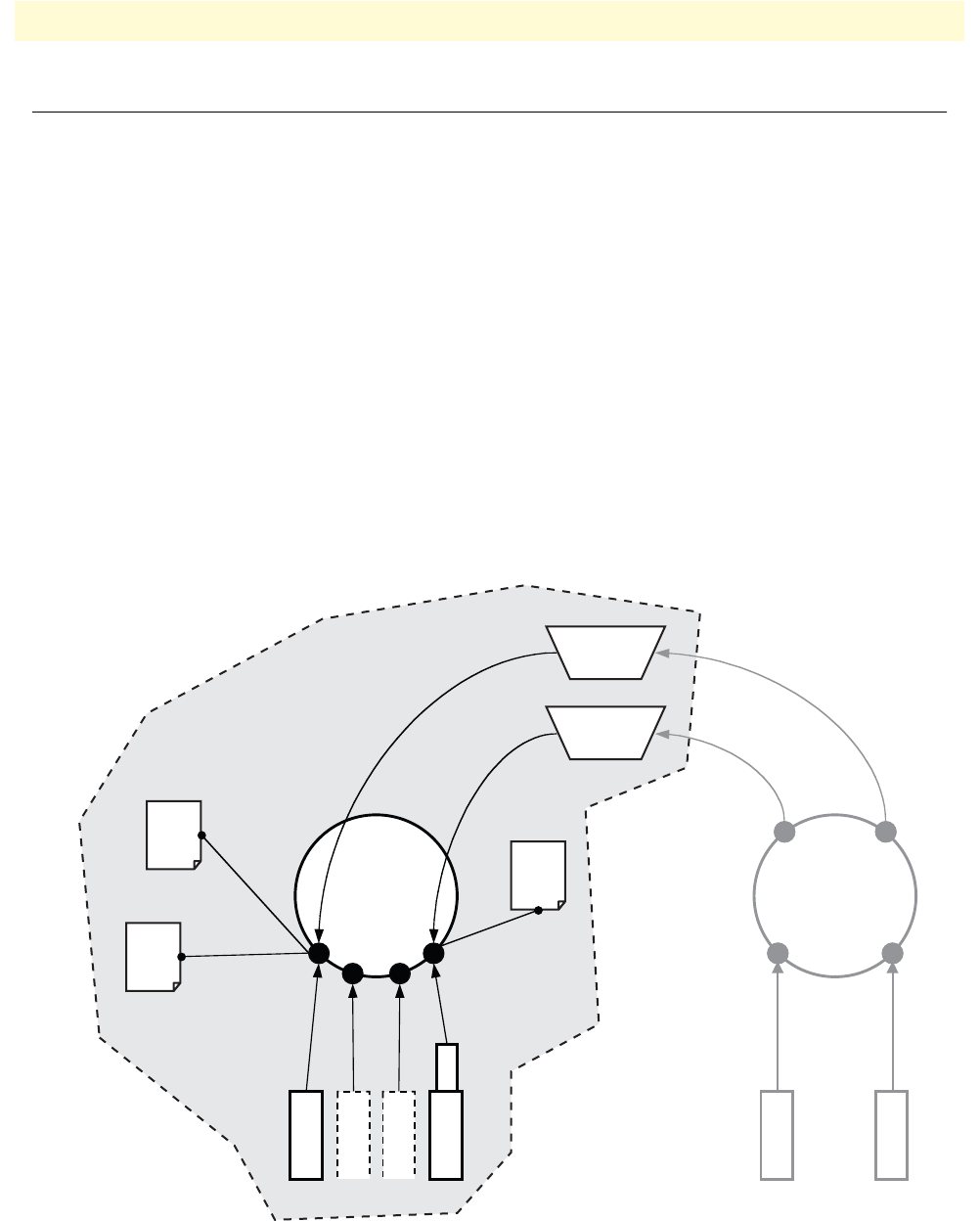
Introduction 115
SmartWare Software Configuration Guide 9 • IP context overview
Introduction
This chapter outlines the SmartWare Internet protocol (IP) context and its related components. You will get the
fundamental understanding on how to set up your SmartNode to make use of IP related services.
The following sections describe the configuration steps necessary to put together certain IP services and the ref-
erences to the related chapters that explain the issue in more details.
To understand the information given in the following chapters, carefully read to the end of the current chapter.
Before proceeding, make sure that you feel comfortable with the underlying SmartWare configuration concept
by reading chapter 2, “Configuration concepts” on page 44.
The IP context in SmartWare is a high level conceptual entity that is responsible for all IP-related protocols and
services for data and voice. The IP context performs much the same function as a standalone IP router, and
since every context is defined by a name, the IP context is named router by default. This IP context can contain
interface static routes, RIP parameters, NAPT, QoS and access control profiles.
In figure 16 on page 115, the IP context with all its related elements is contained within the area on the left,
which has a gray fill. The right side displays the related CS context, which communicates with the IP context
via different types of gateways. Since the CS context and its related components are not the subject of this
chapter, they are illustrated in figure 16 with gray lines instead of black ones.
Figure 16. IP context and related elements
Serial
PVC
Context
IP
router
H.323 GW
SIP GW
Context
CS
switch
ISDN
FXS
bind command
bind command
bind command
Service
Policy
Profile
Ethernet
use command
bind command
bind commands
bind command
use command
NAPT
Profile
ACL
Profile
Gateway
Context
Interfaces
Circuit
Ports



